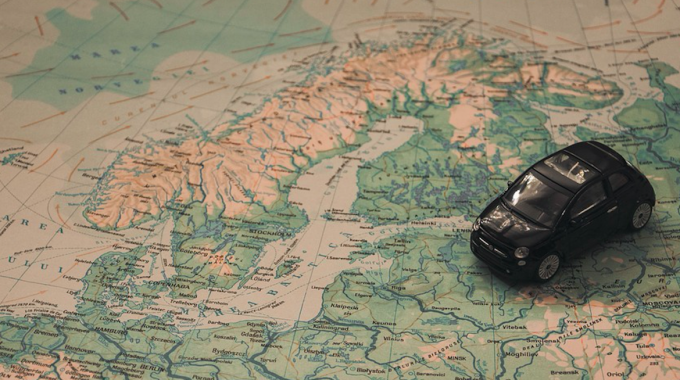
What’s in a name?
A draft of the future reedition of Evert van de Poll’s book ‘Europe and the Gospel’.
Pronounce the word ‘Europe’ and people will immediately attach a certain meaning to it.
The problem is that this word means different things for different people, depending on the context in which it is used. Ask any group, ‘what is the first thing that comes to your mind when I pronounce the following word: Europe,’ and you will get various answers. Sometimes it refers to a space, but it can also have a cultural connotation. In discussions about politics and the economy, ‘Europe’ is often short for the European Union and its institutions, also called ‘Brussels’. For migrants, ‘Europe’ is a destination, and a dream of better living circumstances. What do we mean when we say that someone or something is ‘European’? What are the criteria to qualify for this label?
Usually, it is taken for granted that the other understands what I have in mind. But how can we be sure? When we take the trouble to reflect on what ‘Europe’ means, we will see that it has a wide range of meanings
A direction
To begin with: how did it get its name? The answer is quite a story. We owe the name to the ancient Greeks, but their usage of the word Europé is somewhat confusing, as they attached three different meanings to it
Etymologically, it is a contraction of eurus (εuρύς, ‘wide’) and ops (uψ, ‘face’). literally means: ‘someone with large eyes.’ In Ancient Greece, this was also a designation of the earth.
Others have suggested that the Greek word Europé was a transliteration of the Acadian word erebu, ‘going down’ (of the sun) or ‘evening,’ or from the Aramaic and Hebrew equivalents ereb. Indicating the direction where the sun sets, Europé meant ‘west’ or ‘westwards.’ Interestingly, this is also the meaning of the Arabic word Mahgreb, which might well have the same etymological root. Since the Muslim conquests in the 8th century CE, this has become the name for the most western part of North Africa (today’s Morocco, Algeria and Tunisia).
By contrast, the word for ‘rising’ (of the sun) or ‘morning’ is asu’ or asa’. According to some historians, this is the origin of the term ‘Asia,’ meaning ‘east’ or ‘eastwards’.
The Greeks, and also the Phoenician merchants who sailed all across the Mediterranean Sea, associated Europé with the regions where, according to them, the sun set. And this has remained so even until today. Europe equals the West, the Occident. In contrast, when the Greeks looked eastward, to the regions where from their point of view the sun rose, they designated them as ‘Asia.’ Thus, Asia equals the East, the Orient. It begins at the coast of Asia Minor, present-day Turkey, which medieval European merchants would later call the Levant, literally the land of the ‘rising’ (sun).The division between the Orient (sometimes called Morning Land) and the Occident (or Evening Land) has deeply marked the consciousness of Europeans and non-Europeans alike.
Evert van de Poll
Professor of Religious Science and Missiology at Evangelical Theological Faculty, Leuven and a pastor with the French Baptist Federation.

This Post Has 0 Comments